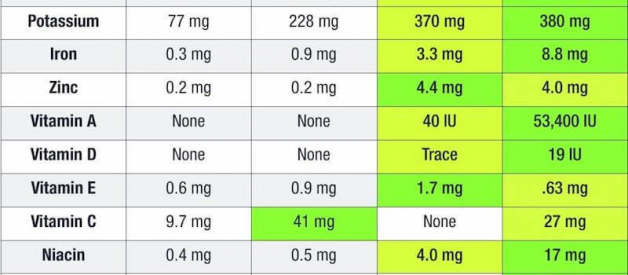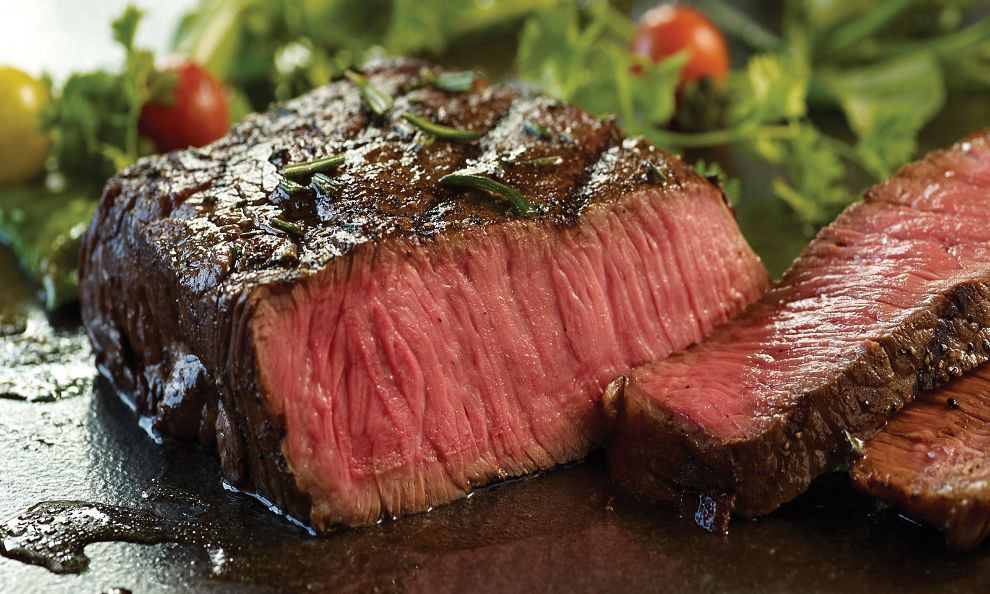 YUM
YUM
Diets have become increasingly ruled by ideology in modern times, which isn?t surprising considering we live in an era of unfettered ideology. I am not here to recommend any specific diet or say that the diet I tried was some magical thing that everyone should do, I am merely recounting my experiences eating carnivorous diet for 90 days. I am also not making a judgement as to what the most environmentally friendly diet is either.
This article was intended to shine light on my experience eating a carnivorous diet and some rudimentary explanations as to why I did it. But I am by no means advocating that others do it or that it is some magical way of living. This is not an academic paper and while I have tried my best to rationalize and cite my supporting reasons and evidence, these are my anecdotes.
A few months ago, I got my body fat percentage accurately measured, and I realized that I was in dire straits, and since I was unable to do much exercising due to a knee issue I decided I had to do something drastic. I had been following a growing community on the internet who were managing their weight and health with an entirely carnivorous, extremely low carb, high protein diet so I was curious to give it a shot. Shawn Baker, one of the more famous proponents of the diet, had put together a n=many study of people who were tracking their data: weight, measurements, body composition, and blood markers for 90 days on this diet and while I couldn?t get everything in order to join the first round of the study, I decided to do my own n=1 study and see what happened.
Anecdotes are not data, and much of what Baker espouses is not backed up by any actual scientific data, however I was intrigued by the large number of people who were reporting improvements in their health while all of their biomarkers were well within the range of healthy. For those of you interested in a more comprehensive carnivore diet plan and some more detailed explanations, check out this piece by Carnivore Aurelius.
I want to emphasize that different diets can work for different people and I have spent an extended period dissecting all of the ?health gurus? out there at the variability of the studies they cite. We see such a tremendous variability in diets across the world, even from the few remaining indigenous cultures still in existence. The primary factor is all of them tends to be a lack of processed food and a good ratio of omega 3 to omega 6 fatty acids.
Before I get into the nitty-gritty details about why this diet isn?t as crazy as some may think I?ll give you results.
I started at a body weight of 214 pounds and a body fat percentage of 30.6 and a waist circumference of 35?. About midway through the study, I got my body fat tested again (via bod pod), and I had dropped it down to 27.6. At the conclusion of the 90 days, my total body weight was stable at 184 pounds, with my body fat % approximately around 24% to 25%ish just eyeballing it as my rate of weight loss became pretty consistent by the end of it. My waist circumference had shrunk to 32? at this point. All measurements were done in the morning upon waking to as to be consistent.
Point being I lost 30 pounds in 90 days and experienced no ill health effects or nutrient deficiencies. I felt fine the entire time and I did not notice any significant improvements in my mood or mental health as some people experience. An important thing to note is that on a low carb diet your body loses a lot of water weight, so it?s not as if I just lost 30 pounds of pure fat but based on before/after pictures the reduction in body fat was pretty significant. Diet adherence was excellent, and while I had the occasional plant food in the form of tea or coffee or the use of seasoning, 97% or so was only meat (along with some eggs). By meat I mean any animal, so that includes beef, pork, fish, chicken, turkey, all as minimally processed as possible.
Most of the time I ate grass fed ground beef or bison as that was the most affordable along with some fish and some organ meat. Regarding taste things did start to get repetitive after a while but when you see the results happening it is a bit easier to get over.
My main mantra throughout was simple:
Food is not entertainment
Eat until full
I felt satiated at every meal and I pretty much never felt super hungry, and while the diet is monotonous and not all that fun from a social perspective, I can?t help but be pleased with the results. The weight loss was relatively consistent after the initial drop off of water weight, just basing it off my body fat tests and weekly weigh-ins I would say that most weeks I lost anywhere from .5 to 1 pound of fat. I lifted weights most days during this time, and I did not notice any reduction in strength. I was not focused on hypertrophy, so my actual muscular gains remained relatively low. Again, I was incredibly sedentary during the final two weeks due to recovering from knee surgery so I most likely also lost muscle mass as well. Scale weight alone is not the best marker of progress in losing fat or in determining one?s health. However, I felt that such consistent weight loss was a good sign.
I got my blood test results upon the conclusion of the 90-day period, and I had no vitamin deficiencies, a low serum glucose level, a Hemoglobin A1c under 5% and super low C Reactive Protein. Almost every single biomarker associated with good health was well within in the healthy range. As expected from a high cholesterol diet my LDL was elevated, and my HDL was super low but my triglycerides were relatively low. However, just looking at one biomarker like cholesterol is not always the best thing to do due to the variability in the numbers. More recent research has indicated that LDL by itself is not a good indicator of cardiac events. Check out Dave Feldman?s work if you want to learn more. Seriously, check out his most recent experiment.
Oh and yeah I did not count a single calorie, not once.
AT ALL
I ate until I was nice and full and then I stopped eating.
Calorie counting is a difficult thing to get right and while it can work, I just had no desire to do that. There are a lot of other factors that determine fat gain and fat loss than simply calories.
If you want to read more about this I?ve included some more links at the bottom of the page.
Ok, so now the part you?ve been waiting to read since I am sure that when you read the title, the first thought in your head was
BUT WAIT YOU CAN?T BE HEALTHY WITHOUT PLANTS, EATING ANIMALS GIVES YOU DIABETES AND DISEASE, THE BLUE ZONED PEOPLE LIVE LONGER EATING PLANTS. YOU?LL BE NUTRIENT DEFICIENT.
I am not a doctor, and I am not going to go into super great detail so I will keep things succinct but my reasoning is as follows.
Meat, specifically from a ruminant, contains plenty of micronutrients, so the idea of a nutrient deficiency is a bit overblown. Especially considering my blood work showed no deficiencies.
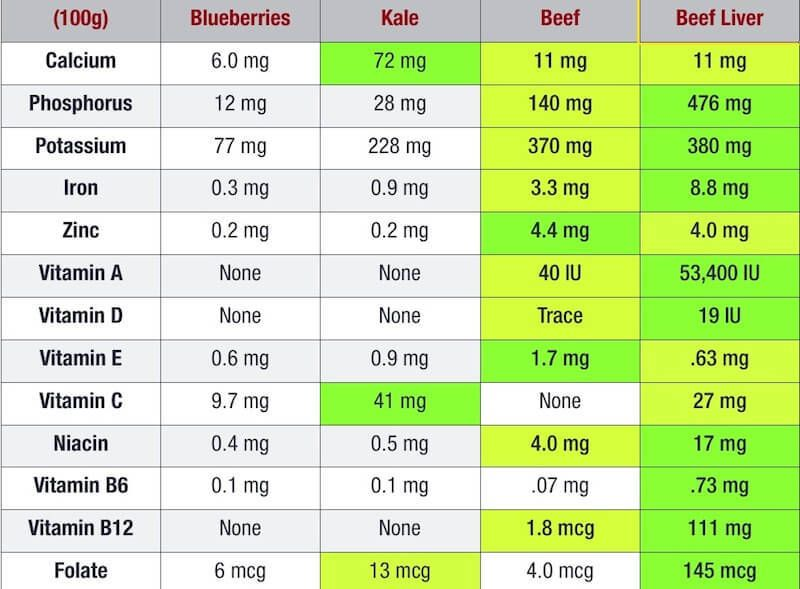 Is beef a health food? Maybe, maybe not
Is beef a health food? Maybe, maybe not
An epidemiological study is not the best to look at because it can?t take out confounding variables that affect the population being studied. Many of these studies that show meat is bad for health are based off these types of studies. To my knowledge there have not been any long-term studies for people eating a carnivorous diet.
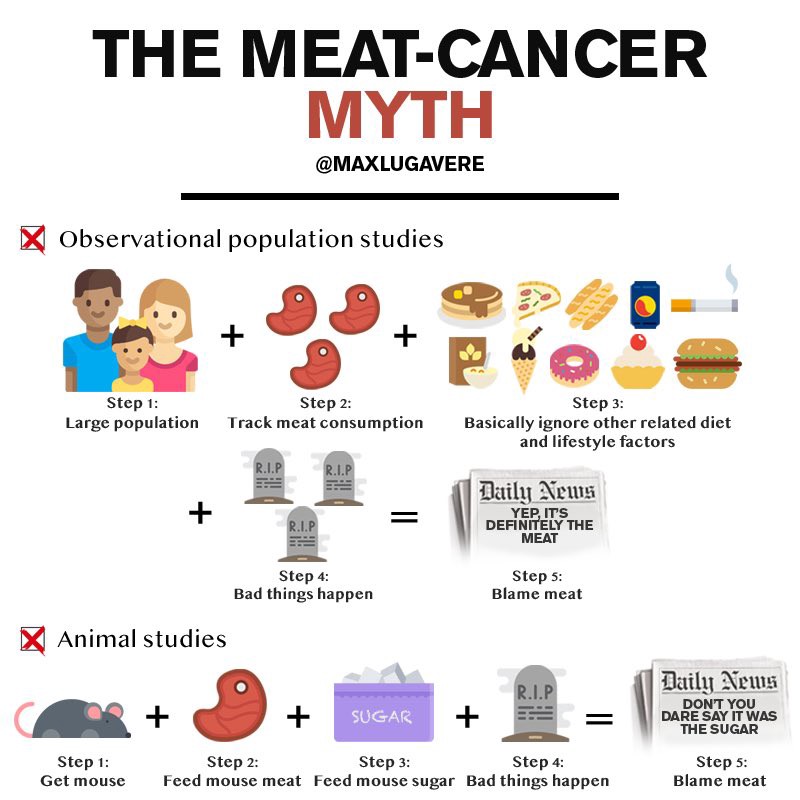 Credit Max Lugavere
Credit Max Lugavere
Most processed foods are plant-based and are not conducive to good health, particularly industrial seed oils. We have seen a massive increase in the diseases of civilization and obesity in this country strongly correlated with increased processed food and seed oils. Carbs in and of themselves are not a bad thing, and fat does undoubtedly make you fat (it?s tough for your body to make fat from carbs btw). However, this combination of hyper-palatable food that is loaded with carbs and fat makes for a deadly combination.
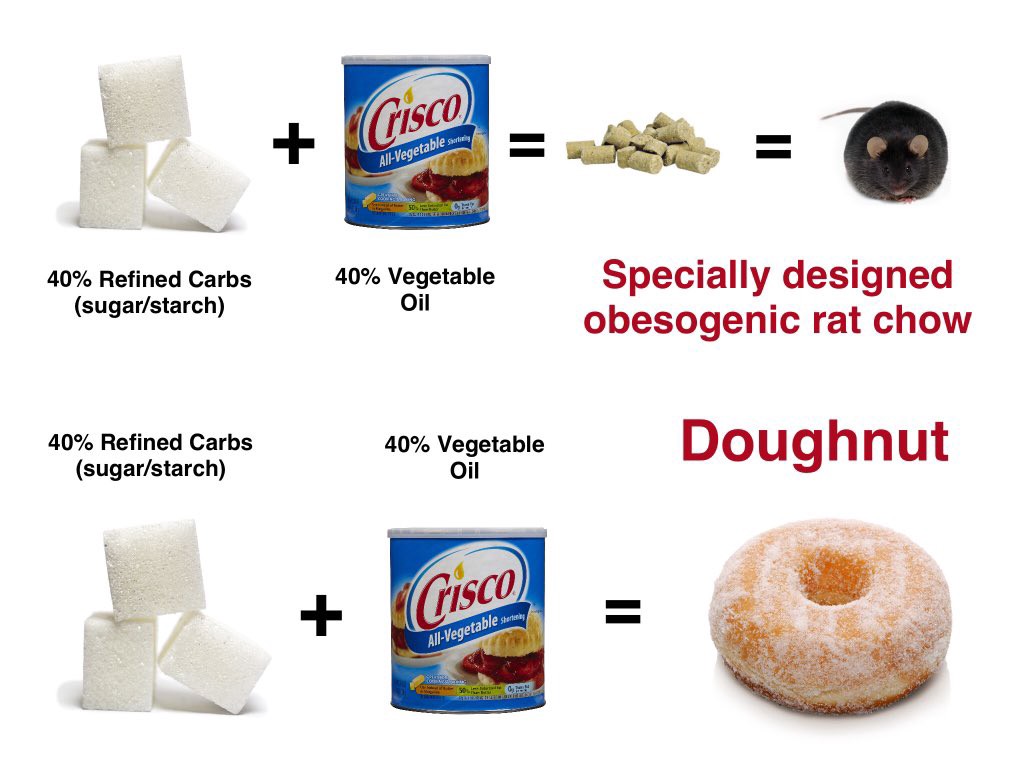 Credit: Ted Naiman
Credit: Ted Naiman
We have overemphasized low nutrient plant-based foods that only make us hungrier and sicker. We can debate what the true cause of obesity in this country is, and while a sedentary lifestyle and lack of exercise certainly plays a large role, so does our consumption of processed foods that contain industrial seed oils along with lots of carbs AND fat.
Many plants contain substances that cause discomfort in humans, and in reality, most plant matter is indigestible by humans. We have cultivated vegetables and fruits to be edible, but approximately 98.5% of plants in the world are inedible by humans. Many of the plants we eat are not high in bioavilable nutrients in the same way animal products are.
Regarding our digestive system, we have more in common with a pure carnivore such as a wolf than a pure vegan such as a cow. We have developed to be obligate omnivores and to be able to get nutrients from a variety of different plants and animals.
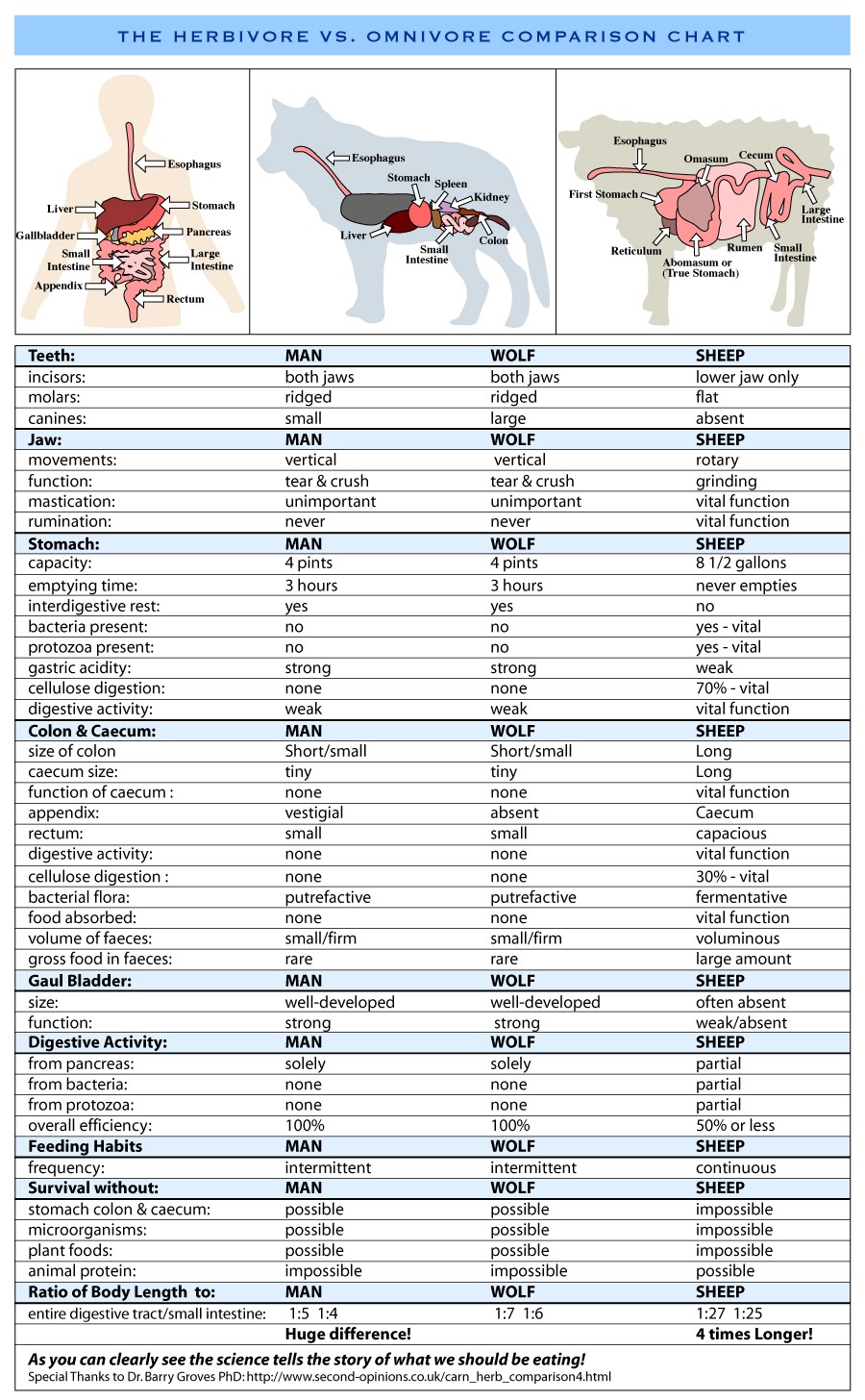
The fact that our brains require omega 3 fatty acids and our bodies need vitamin b-12 is proof enough that animal tissue is an integral part of the diet and has been for a very long time. We can debate the ideal human diet, but we are not discussing that in this article. We tend to get wrapped up in studies and diets specific to certain tribes in isolated parts of the world that our vision gets clouded. Looking at the biological realities of the situation and what types of nutrients are required from our food to be healthy makes this pretty clear.
Many people who adhere to a carnivorous diet adopt a cult-like mentality and think that there is a giant conspiracy out there to discredit them. I do not ascribe to that line of thinking, I merely wanted to see what would happen eating this way and I believe there is evidence to suggest that it can be done in certain situations.
There are plenty of human diets that seem to work for any given population, which points to the fact that there are few essential foods, only essential nutrients. A high protein, meat-based approach is one way to go about it and it worked for me during this 90 day period.
There has been a significant upswing in this movement of people eating an entirely carnivorous diet and having success, and while there is certainly some risk involved seeing as there has been very little research done on that style of eating, I felt like it was worth the risk. As someone who has always struggled with weight I found it so liberating to finally start making progress and I am hopeful that after another bout of 90?100 days eating minimal plant matter (along with some much-needed lower body weight lifting and interval training) that I can finally get to a reasonable body fat percentage and put on some muscle.
Oh right, the next thing that you?re thinking is
ALL DIETS NO MATTER WHAT ALL FAIL AT THE END AND PEOPLE GENERALLY PUT ON THE WEIGHT
Yeah, that may be true according to research done on long term dieters but here are a couple of reasons why it is true.
People lose a lot of weight, some fat, some muscle. But hey for the sake of this let?s say mostly fat.
They then go back to eating what they did before and gain all the fat back.
Or their body gets merely tired of being in a state of constantly depleted adipocytes and hunger and tries to get back closer to a ?set point? of body fat where the adipocytes are filled up. (I know I have mentioned some ?infamous? low-carb people already in this article but I am going to mention another one: Ted Naiman, whose presentation I?ve linked below does a great job of explaining this in greater detail.)
One of the main reasons these people regained the fat was because they did not do any resistance training to build more muscle tissue and increase mitochondrial density along with increasing mitochondrial function.
Wait what? What?s that?
Well, your mitochondria are the organelles in your cells that burn fat and the more you have of them, the more fat you can burn.
Think of mitochondria as the power plant of the cell.
They get smaller when someone has high levels of body fat and do not function in the same way as someone with a lot of muscle tissue.
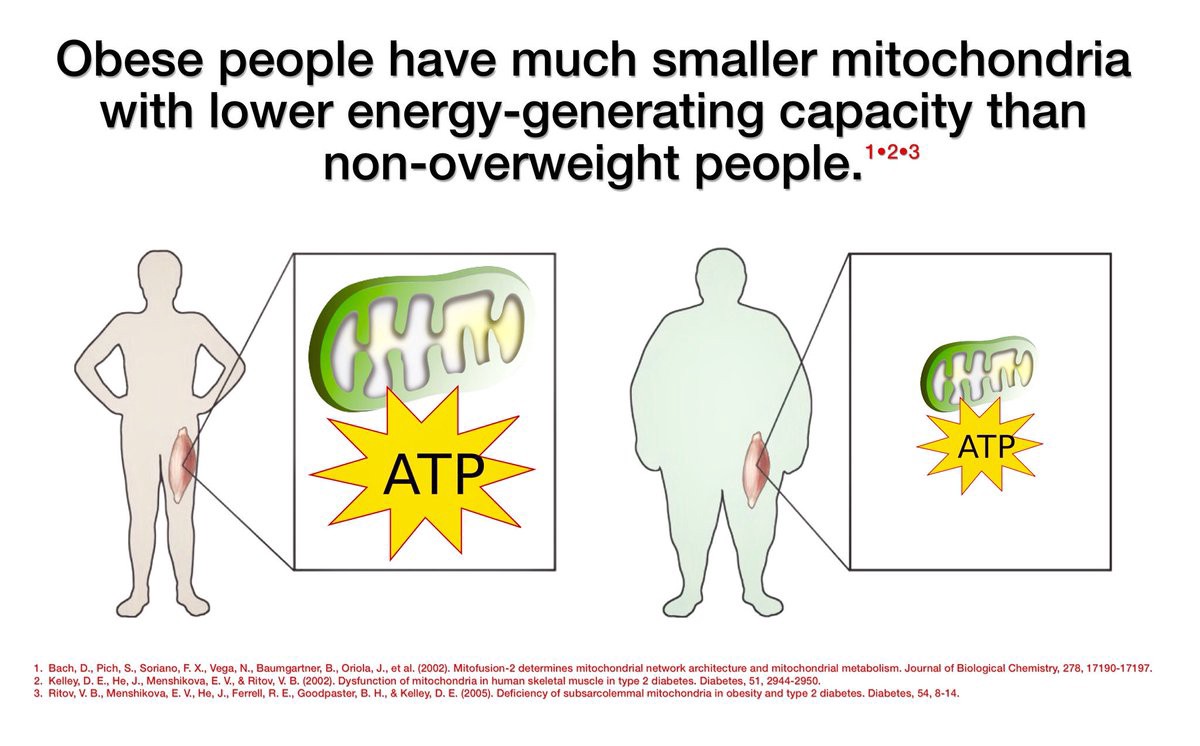 Credit: Ted Naiman
Credit: Ted Naiman
Yes, those are simplistic representations but I?m no scientist.
Adding more muscle mass increases the number and size of mitochondria, and that is a good thing when it comes to keeping unwanted fat off. Additionally, muscle tissue consumes more energy at rest so by increasing muscle tissue you would be diverting resources to rebuild and repair muscle tissue.
As an aside, mitochondria cannot burn fat in the presence of glucose (specifically the most fat is burned when there are low levels of glucose, all biological processes are occurring at all points in time).
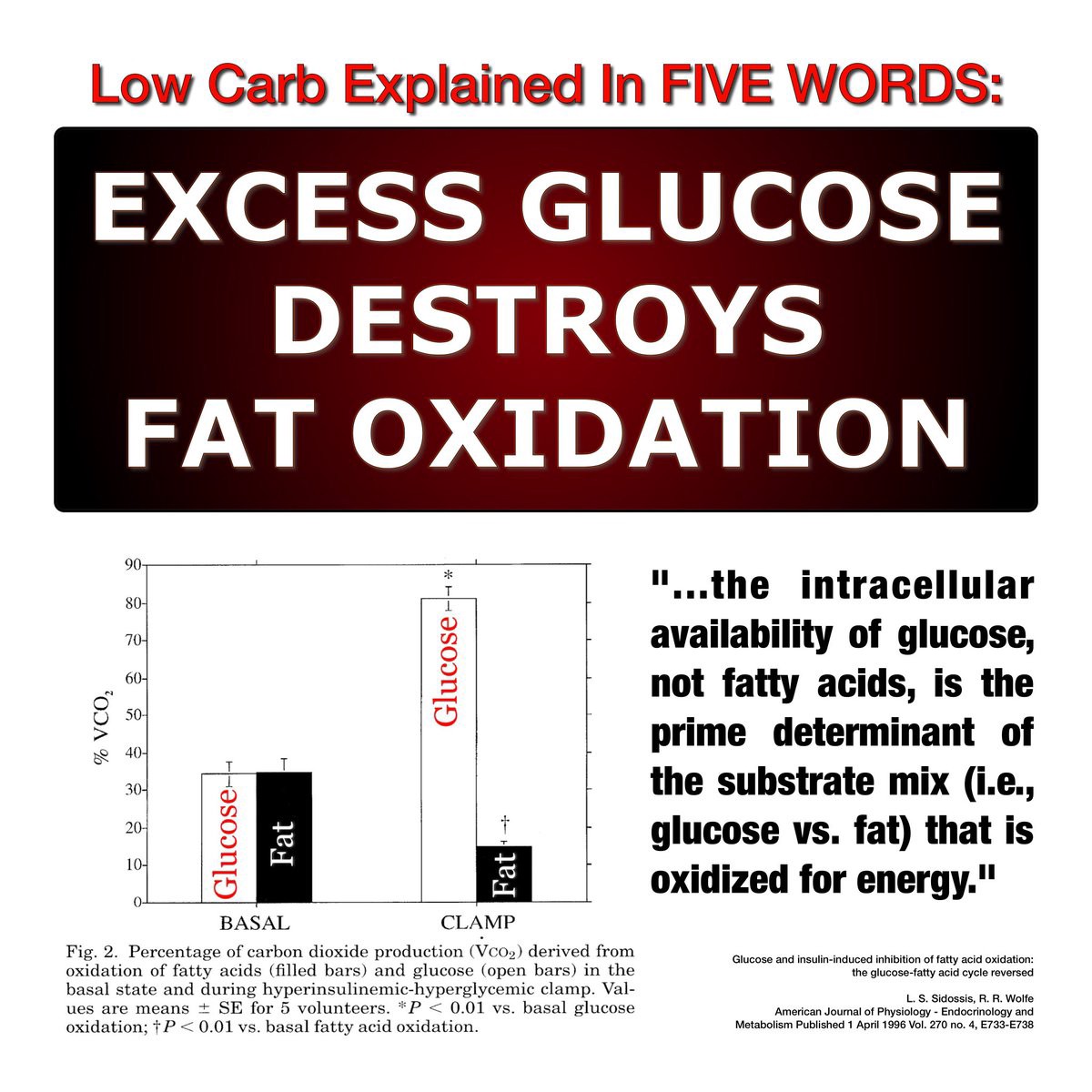 Another Ted Naiman original
Another Ted Naiman original
That is why fasting, calorie restriction, whatever you want to call it, burns fat.
If there is not enough glucose for the mitochondria to burn it will burn fat (more than it usually would). However, if you?ve ingested too much fat then obviously your body will prefer to use that as opposed to stored body fat, hence why many ketogenic dieters do not lose weight despite consuming very small amounts of carbs.
We can cite study after study but it is ultimately up to the individual to figure out the best way of eating to get them to their ideal body composition and ideal health.
The End
Links below, read them if you?re interested.
Calories In vs Calories Out ? overfeeding / underfeeding
CICO is broken worship at the altar of Thermodynamics and Energy Balance at your peril ignorance Calorie counting is an?
highsteaks.com
Bill Lagakos does a great job and his site is a great resource for anything nutrition related.
Light and food in the morning
Suggested pre-reading: Metabolism at night Recently, when the topic of breakfast came up, I got something like this:?
caloriesproper.com
Artificial light regulates fat mass: no bueno.
We?ve seen this time and time again: LIGHT IS A DRUG. above quote is extrapolated from this rodent study: ? Prolonged?
caloriesproper.com
The Antioxidant Myth
Do you choose colorful vegetables, fruits and fruit juices in hopes that their antioxidants will destroy free radicals?
www.psychologytoday.com
And if you want to read more about people eating carnivorous diets check this out:
